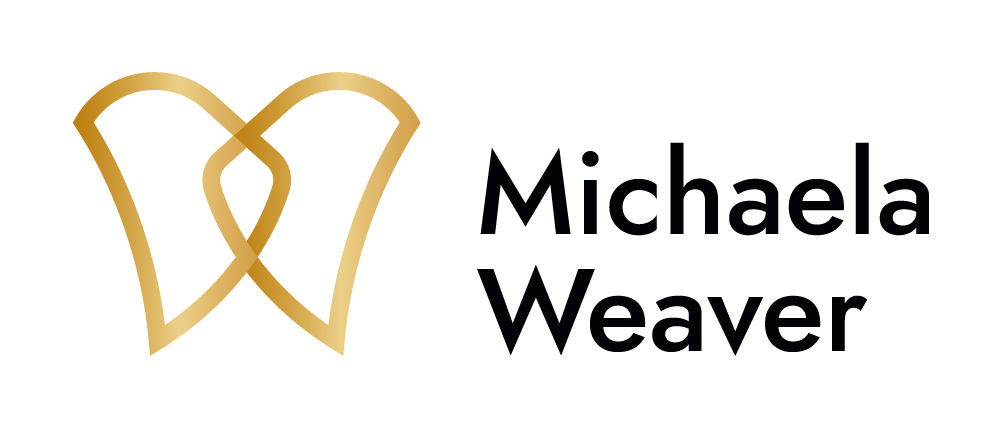Elevating Corporate Wellbeing: The Vital Role of a Mental Health CoachBy Michaela
Table of Contents
Understanding the Corporate Wellbeing Agenda
In today’s fast-paced corporate world, prioritizing mental health has become a critical component of the overall wellbeing agenda. As the corporate landscape evolves, businesses are increasingly recognizing the impact of mental health on personal and business success. This article explores the role of a mental health coach in elevating the corporate wellbeing agenda, emphasizing its significance for achieving both individual and organizational growth.
The corporate wellbeing agenda goes beyond physical health initiatives to encompass the mental, emotional, and social aspects of employee wellness. Recognizing that a healthy workforce is a productive workforce, organizations are investing in programs that promote mental health and resilience. Here’s where a mental health coach plays a pivotal role.
The Vital Role of a Mental Health Coach
A mental health coach is a specialized professional who provides support and guidance to individuals, helping them navigate the challenges of modern work environments. By fostering a safe and confidential space, a mental health coach empowers employees to address stress, anxiety, and other mental health concerns proactively.
Personal Success and Mental Health
The foundation for personal success lies in maintaining good mental health. A mental health coach assists employees in developing coping strategies, enhancing emotional intelligence, and improving self-awareness. This not only boosts their confidence but also enables them to cultivate strong interpersonal relationships, fostering a positive and productive work environment.
Business Success and Mental Health
Business success is intricately tied to the mental wellbeing of employees. An engaged and motivated workforce is the cornerstone of productivity and innovation. Mental health coaching helps employees overcome obstacles, handle pressure effectively, and improve decision-making skills, thus contributing to overall business growth.
Stress Reduction and Resilience Building
A mental health coach equips employees with tools to manage stress and build resilience. The ability to cope with workplace demands, setbacks, and challenges is vital for maintaining a healthy work-life balance. With stress reduction techniques and resilience-building exercises, employees are better equipped to face the ups and downs of the corporate world.
In the ever-changing landscape of the corporate world, a new mode of resilience has emerged—one that goes beyond merely withstanding challenges, but rather embraces the ability to flow with change. This approach, referred to as the “aikido of change,” by Michaela Weaver draws inspiration from the martial art of Aikido, where practitioners blend with and redirect the energy of their opponents rather than meeting force with force. This concept of effective resilience is at the heart of Michaela ‘s resilience-building coaching philosophy as a Master coach.

Like Aikido, the aikido of change encourages individuals to embrace change with a sense of harmony and adaptability. Rather than harshly resisting change, which can lead to stress and burnout, this approach teaches employees to flow with it, viewing transitions as opportunities for growth and learning. As a Master coach, Michaela Weaver recognizes the power of this mindset and incorporates it into her mental health coaching approach.
A mental health coach equips employees with practical tools to manage stress and build resilience, recognizing that these skills are vital for maintaining a healthy work-life balance. With the demands of the corporate world, setbacks and challenges are inevitable. Stress reduction techniques provided by the coach help employees regulate their stress response and maintain a sense of calm even in high-pressure situations.
Moreover, resilience-building exercises in the aikido of change approach empower employees to develop an adaptable mindset. By recognizing that change is a constant in the business environment, individuals can cultivate the capacity to flow with it, rather than resist or fear it. This enables them to approach change with greater ease, flexibility, and open-mindedness, leading to more effective problem-solving and decision-making.
The Aikido metaphor aligns well with effective resilience because it promotes the principle of non-resistance and emphasizes the importance of aligning oneself with the flow of events. In the face of adversity or change, employees learn to blend with the situation, finding opportunities to redirect challenges into positive outcomes.
As a Master coach, Michaela Weaver guides individuals in adopting the aikido of change approach, helping them navigate through uncertainties with grace and composure. With this mindset, employees become more proactive and forward-thinking, embracing new possibilities and innovative solutions.
By incorporating the aikido of change into her coaching philosophy, Michaela Weaver empowers employees to not just cope with change but to thrive in the face of it. Her mental health coaching equips individuals with the inner tools needed to remain centered, focused, and balanced amidst the dynamic nature of the corporate world.
Building Emotional Intelligence in Leaders
Strong leadership is crucial for driving business success. Mental health coaching for leaders focuses on building emotional intelligence, enabling them to lead with empathy and understanding. Emotionally intelligent leaders create a supportive culture that encourages employee growth and development.
In the ever-evolving corporate landscape, the significance of mastering the mind and understanding human nature cannot be underestimated, especially for leaders who hold the key to driving business success. Mental health coaching takes a transformative approach by equipping leaders with the tools to delve into the intricacies of their minds and harness the functioning of human nature, paving the way for exceptional leadership.
Leaders who possess a deep understanding of the mechanics of the mind are better equipped to navigate the complexities of the business world. Mental health coaching empowers them with insights into cognitive patterns, biases, and subconscious influences that may impact their decision-making processes. By mastering the mind, leaders can make more informed and objective choices, steering their organizations towards growth and prosperity.
Mental health coaching delves into the functioning of human nature, helping leaders develop a profound awareness of human behavior and motivations. This awareness enables them to create a work environment that nurtures intrinsic motivation and empowers employees to reach their full potential. By recognizing the diverse needs and aspirations of their team members, leaders can cultivate a culture of inclusivity and empowerment, where each individual’s unique strengths are celebrated and utilized.

Beyond emotional intelligence, mental health coaching fosters qualities such as resilience, adaptability, and perseverance in leaders. By mastering their minds, leaders develop a growth mindset that sees challenges as opportunities for learning and improvement, rather than insurmountable obstacles. This mental agility enables leaders to lead with composure and poise, even in times of uncertainty.
As leaders gain mastery over their minds and the intricacies of human nature, they inspire confidence and trust within their teams. Employees feel valued and understood, fostering a deep sense of loyalty and commitment to the organization. A mentally agile leader sets an example for their team, encouraging a culture of continuous growth and curiosity.
Mental health coaching helps leaders tap into their authentic selves, leading with clarity and conviction. By understanding their core values and aspirations, leaders can make decisions that are in alignment with the vision and mission of the organization. This congruence between leadership and organizational values creates a strong sense of purpose, motivating employees to work towards common goals.
In conclusion, mastering the mind and understanding human nature are essential components of effective leadership. Mental health coaching empowers leaders to gain insights into their cognitive processes and develop a profound understanding of human behavior. By harnessing this knowledge, leaders can make informed decisions, create a supportive work environment, and inspire their teams towards exceptional performance. As leaders lead with mental agility and authenticity, they foster a culture of growth, innovation, and success within their organizations.
Reducing Stigma and Fostering Inclusivity
By incorporating mental health coaching into corporate wellness initiatives, organizations actively combat the stigma surrounding mental health. As employees witness a culture of openness and inclusivity, they are more likely to seek support when needed, fostering an environment of empathy and understanding.
In the post-pandemic world, normalizing fear responses and bringing human honesty to the workplace have become crucial factors for creating a healthy work environment. The Covid-19 pandemic and lockdowns have blurred the lines between home and work, highlighting the need for a more holistic approach to employee wellbeing. Whole person coaching, which addresses the mental, emotional, and physical aspects of individuals, has emerged as an essential tool in helping employees navigate through these challenging times.
Normalizing fear responses acknowledges that fear is a natural human emotion, especially in the face of uncertainty and change. By destigmatizing fear, organizations create an atmosphere where employees can openly express their concerns and anxieties without judgment. Leaders who embrace this approach understand that addressing fear head-on fosters a culture of trust and psychological safety.
Bringing human honesty to the workplace encourages authenticity and vulnerability among employees and leaders alike. When employees feel free to share their thoughts and feelings, it nurtures an open and transparent work environment. Leaders who lead with human honesty inspire trust and create a sense of camaraderie, bridging the divide between hierarchical structures and promoting a sense of belonging.
The pandemic has shattered the traditional separation between home and work, leading to a more transparent view of employees’ personal lives. Whole person coaching acknowledges that employees are multifaceted individuals with personal lives that impact their professional well-being. By incorporating this approach into corporate wellness initiatives, organizations show that they value their employees as whole human beings, not just workers.
Mental health coaching plays a vital role in this transformation by providing the tools and support employees need to navigate these complex intersections of work and life. By addressing mental health in a holistic manner, organizations foster a culture of openness and inclusivity. As mental health coaching becomes an integral part of corporate wellness initiatives, employees witness a commitment to their overall well-being, and the stigma surrounding mental health begins to dissipate.
This culture of openness and inclusivity empowers employees to seek support when needed without fear of judgment or retribution. As employees witness their leaders embracing mental health coaching, it sets an example that seeking help is not a sign of weakness but a testament to one’s commitment to personal growth and resilience.
In conclusion, normalizing fear responses, embracing human honesty, and incorporating mental health coaching into corporate wellness initiatives are transformative steps towards creating a healthy and thriving work environment. The post-pandemic era demands a more holistic approach to employee wellbeing, acknowledging the interconnectedness of personal and professional lives. By nurturing a culture of openness and inclusivity, organizations create a space where employees can be their authentic selves and feel supported in their mental health journey. As organizations prioritize whole person coaching, they sow the seeds for a resilient, engaged, and thriving workforce that can navigate through any challenges that come their way.
In today’s rapidly changing and demanding corporate world, anxiety levels are on the rise, affecting managers, executives, and teams alike. Low levels of fear have become prevalent, leading to a work environment where operating from a place of fear has become the norm. This unhealthy dynamic not only takes a toll on the mental wellbeing of employees but also hinders the productivity and growth of the organization as a whole. In such a challenging landscape, a mental health coach plays a vital role in enabling leaders to lead from a place of wisdom, flow, peak performance, and personal best.
The pervasive atmosphere of fear and anxiety in the workplace creates a sense of constant pressure, impacting employees’ mental health negatively. High-stress levels can lead to burnout, decreased job satisfaction, and a decline in overall wellbeing. Moreover, employees may feel a reluctance to take risks or share innovative ideas due to fear of failure or judgment, stifling creativity and growth within the organization.
Operating from a place of fear also affects the decision-making process of leaders and managers. Fear-based decision-making tends to focus on short-term gains and risk aversion, hindering long-term strategic planning and potentially missing out on valuable opportunities for growth and innovation. This reactive approach to problem-solving can lead to missed chances to thrive and adapt to market changes effectively.
A mental health coach becomes a catalyst for change, empowering leaders to shift from fear-driven behaviors to leading from a place of wisdom mind. By developing emotional intelligence and self-awareness, leaders can make decisions with clarity and empathy, fostering a more supportive and nurturing work environment. As leaders learn to manage their emotions and reactions, they can inspire confidence, trust, and respect among their teams.
Leading from flow and peak performance, as guided by a mental health coach, allows leaders to embrace challenges with confidence and enthusiasm. In a state of flow, leaders and teams experience heightened creativity, productivity, and a sense of fulfillment in their work. By tapping into this state, organizations can unlock untapped potential and maximize the talents of their employees.
Furthermore, a mental health coach helps leaders recognize the importance of self-care and personal wellbeing. Leading from a place of personal best involves prioritizing physical and mental health, setting an example for employees and creating a culture that values work-life balance and employee wellbeing.
As leaders embrace this transformative journey with the guidance of a mental health coach, the culture of fear dissipates, making room for a culture of collaboration, innovation, and growth. Employees feel valued and supported, resulting in increased job satisfaction and a sense of ownership in their work.
In conclusion, the rise in anxiety levels and fear-based operations in the corporate world demands a shift towards a healthier and more productive approach. A mental health coach serves as a beacon of support, enabling leaders to lead from wisdom mind, flow, peak performance, and personal best. By prioritizing mental health and fostering a positive work environment, organizations can unleash the true potential of their employees, driving innovation, productivity, and success. Embracing the role of a mental health coach is a transformative step towards creating a culture of thriving, where employees and the organization as a whole can flourish and thrive.
The growth of the corporate wellbeing agenda highlights the indispensable role of a mental health coach in supporting personal and business success. By prioritizing mental health, organizations create a work environment that values employee wellbeing and fosters productivity, innovation, and growth. As businesses embrace the significance of mental health, they pave the way for a brighter and healthier future for both their employees and the organization as a whole.
Michaela is a Fellow for The Association of Coaching, founder of the successful brand, The Alcohol Coach , Executive, Life and Wellbeing Master Coach.

Hi, I'm Michela
I’m a master coach, and someone liberated from limiting narrative, and self-sabotaging coping mechanisms, such as alcohol. I have walked the path. I understand your concerns and fears. Here you will find some of my thoughts and insights. Happy browsing!
Keep me in the loop!
Want more inspiration, knowledge and ideas about alcohol and how to make the changes you want stick? Sign up here to receive more articles and news like this.
